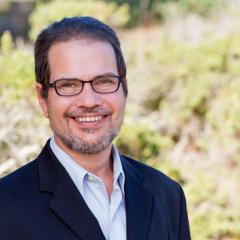The Future of Our Food: Scheuer and Lincoln speak at PBS Hawaiʻi town hall
Jonathan Likeke Scheuer and Noa Kekuewa Lincoln appeared on a panel of experts for a live town hall by PBS Hawaiʻi on the future of food in Hawaiʻi’. The summary of the episode reads:
“The COVID-19 pandemic exposed a frightening vulnerability here that has been decades in the making; Hawaiʻi’s reliance on imported food which is estimated at 85 to 90 percent. Native Hawaiians were self-sufficient for centuries. Studies have shown that although a complete shift back to ancient ways is not feasible, the adoption of a sustainability mentality would go a long way. How do we as a community achieve this? What are the first steps and how do we get buy-in to make change?”
Jonathan and Noa spoke about problems in policy and attitudes around farming, opportunities for growth, and the historical threads that connect many of these issues. Watch the entire episode here, and find a few quotes from Jonathan and Noa’s remarks below.
Noa: “The historical threads help to connect a lot of those problems. When you look at our past agricultural industries that have been based on plantation, on export, we’ve committed ourselves for two centuries in this direction. And to stop suddenly doing large scale plantation export and trying to change tact to building a local food system, we’re two centuries off course, it’s not a quick fix. It’s going to take sustained, large scale investment to build out that infrastructure that’s missing. … Stepping back further in that historical threat, dispossession of native Hawaiians from land is when a lot of these breaks from food security in our islands originally started. I do believe that should be part of the conversation of solutions as well.”
Jonathan: “There’s a certain bias in this conversation that we’ve had, that we’re thinking about one model of farming: the individual or the family farmer. That is one, really critical model. There’s also the larger corporate model, but then there’s also some of the most progressive and amazing things that have happened around Hawaiʻi have happened around community driven farming.”
Noa: “Who’s going to go into [local farming] if it’s just economics? Kids are going to go into that business because they want to make Hawaiʻi a better place, because they want to connect to land, because they want to feed their community. They’re going to connect to the values and the culture of food, and not the economics of it.”
Jonathan: “These are national tax policies, farm policies, agricultural policies that are making our farmers here less competitive. ... We have to not just support local farmers, but we also have to look at our cousins in the Pacific and American affiliated islands that are also dealing with these exact same problems and start to bring them to the national conversation … that there’s serious local negative consequences from these national policies that value cheap food above other values.”
Noa: “[Food importation] is a different story when you look at it categorically. Seafood, we do pretty good locally. Fruits and vegetables, we do OK. In staple carbohydrates, the foundation of our food pyramid, we produce less than 0.4% locally. There’s tremendous opportunities for gains there. That’s where I think our Indigenous crops do have a strong role to play. Kalo, sweet potato, ulu, that are grown oftentimes in ways that take environmental issues to heart.”


